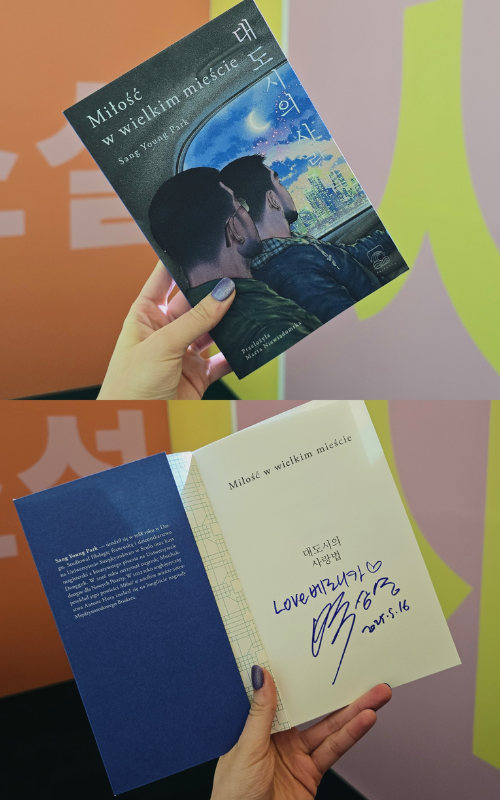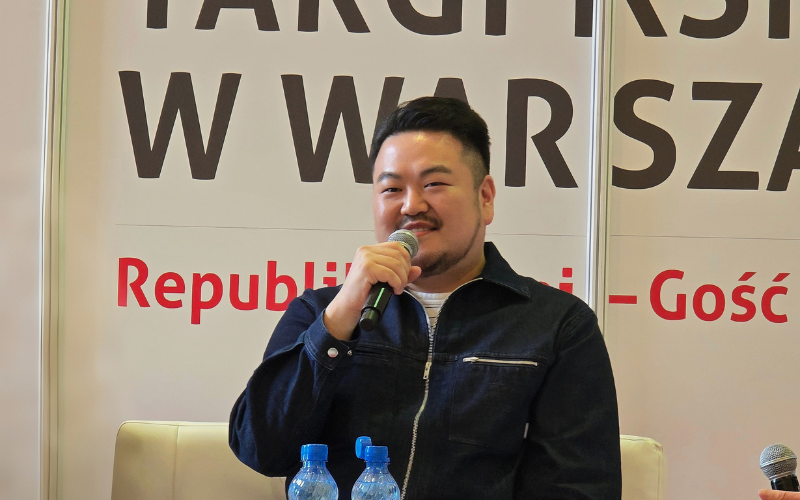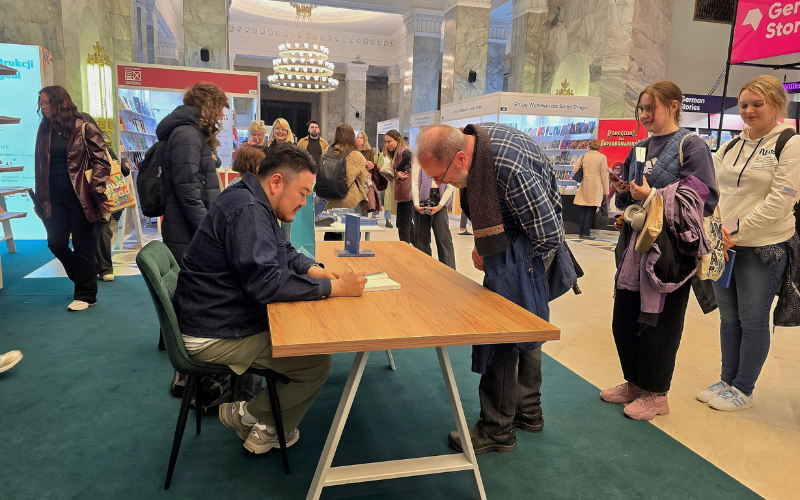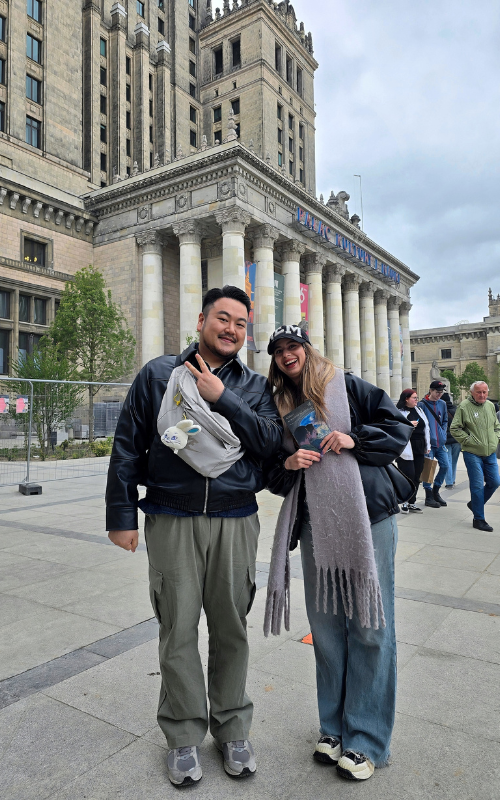Love, loneliness, and the search for connection in a bustling city —these are the themes that Korean author Park Sangyoung explores in his award-winning novel Love in the Big City. A touching and darkly humorous portrayal of queer life in Seoul, the book has captivated readers worldwide with its raw honesty and emotional depth.
In this exclusive interview conducted through Instagram on 28th of May, Park Sangyoung opens up about the soul of Love in the Big City—a novel that captures the heartbeat of a generation navigating queer love and urban isolation in Seoul. He traces how the city transformed from a place of 'love-hate' to one he now sees with newfound tenderness since the book's global resonance.

"Love in the Big City" touched the hearts of many readers—myself included—with its raw portrayal of queer love, loneliness, and the chaotic beauty of Seoul. How has your relationship with the city changed since writing this novel?
Originally, Seoul was a city of love-hate for me. It's a place that shines beautifully 24 hours a day, more exciting than any other city, but at the same time, it can be intensely lonely and exclusive. After writing Love in the Big City, many people told me they came to see Seoul in a new light through my novel (and the drama). Hearing those words made me feel more affectionate toward Seoul—almost like I'd become its honorary ambassador. I've grown to love the city more deeply.
One of the novel's charms is its balance of humor and melancholy—how laughter and ache coexist. Was this contrast intentional, or did it emerge organically from the story?
That's just how I perceive the world. When I'm alone, I'm often gloomy and melancholic. When I'm with others, I enjoy making people laugh and playing the clown. The space between those two selves is what shaped me, and I think that contradiction makes me shine brighter. So when writing, I consciously reflected this duality. I'm thrilled readers find it both funny and moving.
The novel boldly explores messy, sometimes painful relationships. Do you think loneliness is an inevitable part of urban connections, or is there hope for something gentler?
I believe loneliness is inherent to being human—not just in cities. We're destined to arrive and leave this world alone. Yet that's precisely why I think it's vital to hold each other close and lean on one another while we're alive.

The novel captures the paradox of loneliness in a crowd. In the age of dating apps and social media, do you think technology deepens our isolation or offers new ways to connect?
Both. I became an adult before smartphones existed. Back then, dating happened mostly offline, face-to-face, making it harder to meet people. Smartphones let us connect anytime, anywhere—for some, this eases loneliness; for others, it amplifies it. There's no single answer.
When writing for Korean audiences while knowing your book would reach global readers, did you worry about how culturally specific moments might translate—or did you trust the story's core would transcend borders?
I burrow relentlessly into my own truth, striving to capture my emotions at 100% purity. When I first wrote Love in the Big City, I never imagined it would resonate so widely. Now I believe the more deeply personal a story is, the more universal it becomes.
As the novel was adapted for screen, were there scenes where you thought, "The book did this better"—or moments that unexpectedly came alive on screen?

The queer representation feels more vibrant in the book. The film excels in portraying female characters, while the drama captures the raw emotion of love best—I adore the love scenes in episodes 3 and 4.
The novel's been called "a love letter to messy millennials." What's the messiest real-life experience from your 20s that didn't make it into the story?
(Chuckles) Almost all my messes ended up in the book. For writers, life is material.
Finally, any hints about your next project?
I'm writing The Woman Who Wore a Crown of Straw (literal translation), a mystery-thriller about the shadowy power struggles of Korea's corporate dynasties ("chaebols"). It'll be very different from my past work. I'm also adapting my novel About Faith into a drama—fingers crossed!
And because I'm curious: Is there a question you wish journalists would ask but no one ever does?
At this point, I think I've been asked everything. You've covered it all, and I've answered freely. I'm a lucky writer.

How about this article?
- Like2
- Support1
- Amazing4
- Sad0
- Curious0
- Insightful0


